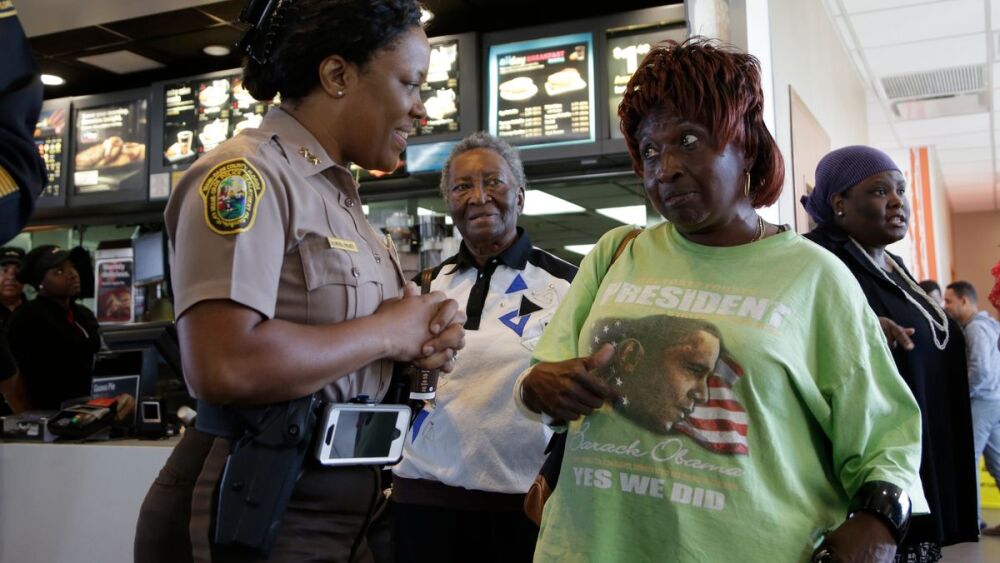Sir Robert Peel, a two-time Prime Minister of the United Kingdom, is considered the father of modern community policing.
In the 19th century, Peel enacted sweeping penal reform and in 1829 was instrumental in creating London’s Metropolitan Police Force. Peel’s reform efforts inspired the Nine Peelian Principles of Law Enforcement, which summarize Peel’s ideas of “policing by consent” in which cops are citizens in uniform tasked with protecting their fellow citizens. These principles bolstered police accountability by issuing badge numbers and emphasizing citizen connection.
Accountability and community connection are of course highly relevant in the modern age. Today’s field training officers would do well to read and incorporate Peelian principles into their training programs. Peel’s ideas are particularly useful in building community trust.
Each of Peel’s nine principles is worthy of discussion, but for the purposes of this article we will focus on the seventh Peel Principle:
“Police, at all times, should maintain a relationship with the public that gives reality to the historic tradition that the police are the public and the public are the police; the police being only members of the public who are paid to give full-time attention to duties which are incumbent on every citizen in the interests of community welfare and existence.”
In other words, police are members of the community they serve, and community members make up our police departments. If we apply this principle from the first day of training, new officers will get to know the communities they serve and gain a better understanding of their community’s dynamics. In doing so, officers will be more respectful, fair and decisive.
Field training in the present day
Field training officers have only a few months, or weeks in some cases, to prepare trainees for a successful career in law enforcement. Trainers are very good at teaching new officers the essentials of report writing, making arrests, applying case law, and so on. But how often do we teach trainees to be a part of the community they serve? It is vital trainees are exposed to concepts such as community safety, community partnerships, and cooperation between residents and police as a way to solve problems.
This all sounds great, but how do we do it? We start on the first day of training with the following:
- Get officers out of the car and talk with citizens.
- Attend community watch meetings.
- Instill good habits into our trainees from the first day.
- Form partnerships and trust with the community.
Let’s break each of these down further.
Get out of the car
As simple as it sounds, get your trainee out of the car and talk to citizens. This accomplishes a couple of things. First, it improves the trainee’s interpersonal and communication skills. Secondly, engaging the community in a positive way (as a fellow member of the public) helps build trust and dissolves biases toward police. Talking with residents about community issues and actively listening to their concerns adds a personal touch to law enforcement. In law enforcement, trust equals success. Patrol officers can do their part by getting out of the car and talking with citizens.
Community watch meeting
Community watch meetings are the perfect opportunity for trainees to meet citizens and prominent community figures on their beat. These meetings present an opportunity to discuss strategies to reduce crime and improve quality-of-life issues. The trainer may do most of the talking at first, but it would be perfectly acceptable for the trainee to jump in and talk about recent calls. This way, the new officer gets to know the community and the community gets to know them.
Teaching good habits
Trainers who consistently get out of their cars to chat with residents and business owners instill good habits in their trainees. Law enforcement officers are learners. Trainees especially seek to emulate good behavior displayed by their training officers. Positive interaction with the community will help dispel misconceptions about law enforcement and move this noble profession forward.
Forming community partnerships
One of the basic functions of law enforcement is to prevent crime and disorder. This can only be accomplished when the public approves of police action. A use-of-force incident risks weakening the public’s trust in police, so it is essential to build a strong foundation of community partnership to weather any potential fallout. A solid foundation will allow you to quickly rebuild that trust. A trainee can be an integral part of forming these partnerships and thereby build a higher degree of cooperation and trust from the public. Without strong community partnerships, misperceptions about policing will continue to grow and damage the reputation of law enforcement.
Conclusion
Field training officers should use Sir Robert Peel’s Policing Principles to help tackle modern-day issues, as these principles are just as relevant today as they were in 1829. Building strong partnerships with the community, getting out of the car, and talking to citizens helps reduce the public’s fear of law enforcement, reduces biases, and builds a mutual understanding and a degree of trust between the community and the officers.
As departments are faced with staffing shortages and reduced budgets, the distance between communities and police departments may grow. Teaching new officers good community policing habits from their very first day can help narrow this gap.
This article, originally published on March 26, 2022, has been updated.





